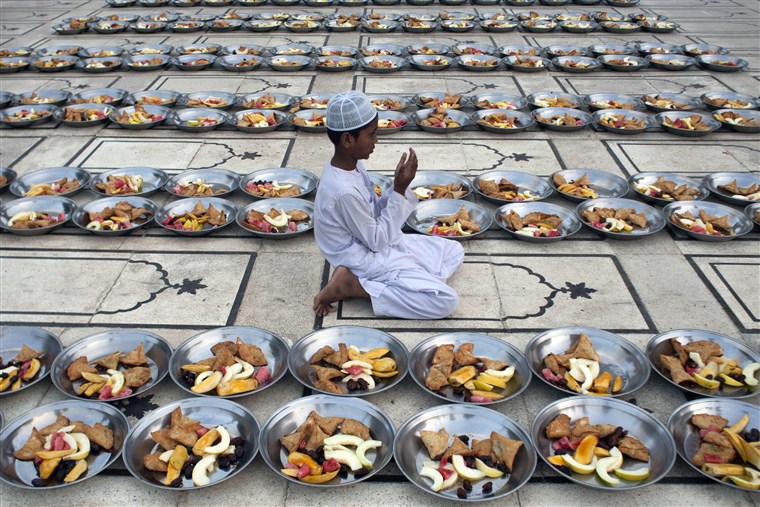
The Spiritual and Social Benefits of Fasting in Ramadan

Ramadan is the time of spiritual reflection, improvement in all type of activities that we normally perform and also increase in devotion and worship of Allah (SWT). Muslims are encouraged to put more effort in following the teachings of Islam. Muslims seek Allah’s mercy, forgiveness, and salvation from Hellfire from Allah Almighty in excess. Ramadan is the month of fasting in which Muslims fast for the sake of Allah Almighty. The fast begins at dawn and ends at sunset.
According to the Holy Quran and the Sunnah of Prophet Muhammad (SAW) fasting (Sawm) has a unique moral, spiritual and social characteristics. Fasting is a kind of worship (Ibadan). This Ibadan is one of the Islamic pillars and compulsory for all Muslims, except for children below the age of puberty, the very old, the permanently sick, and so on. Fasting is also temporarily exempted for some excuses like pregnancy, lactation, menstruation, the blood of childbirth, illness, and journey. All of them are allowed to postpone their fasting until the end of their excuses.

Spiritual and Social Benefits of Fasting
Fasting is usually combined with additional prayers other than normal we perform in daily routine, meditation, reciting the Holy Quran. We also have to explore the spiritual and social benefits of this act of worship in order to appreciate its value. In Ramadan, Fasting Muslims experience following social and spiritual benefits:
- Fasting in Ramadan helps in closeness to and consciousness of Allah Almighty.
- Fasting Muslims experience great satisfaction as they demonstrate their deep love for Allah Almighty by obeying His orders.
- Fasting ensures the harmony and unity of society. The sense of empathy that invokes due to fasting helps the faster understand other people better and makes it easier for them to make friends and socialize.
- Fasting raises awareness of the situation of poor people who live in our society. Fasting teaches the rich, who eat good, nutritious food and never suffer from hunger, what hunger is. When they stay hungry and thirsty for a specific period they begin to think about the poor and feel empathy for them.
- This holy month of Ramadan brings discipline in our lives. While we wake up at Sahar time, we manage to do so because we care for fast. We offer Nimaz of Fajar at a proper time to close the fast properly, thus we give ourselves a chance to care for the things that need preference.
- Thus we learn to give preference to important matters and manage our lives in Ramadan by the rating of preferences.
- Fasting teaches Muslim the principle of sincere love; because when he observes the fasting he does it out of deep love for Allah (SWT).
- It cultivates in Muslims a vigilant and sound conscience. The fasting person keeps his fast in secret as well as in public. In Fasting, especially, there is no normal authority to check man’s behavior or compel him to observe the fasting, he keeps it to please Allah and satisfy his own conscience by being faithful in secret and in public.
- Fasting brings the sense of hope and optimism in Allah’s grace and forgiveness.
- Patience and unselfishness comes due to fasting because they deprive themselves of essential commodities and pleasures.
- Fasting Muslims experience self-control. As Muslims fast, they should control own temper, they should remain calm and refrain from harming others, verbally or physically.
- Due to fasting Muslim experience unity, charity and brotherhood. In the month of Ramadan brotherhood can be seen. The fasting in Ramadan helps the Muslims to be aware of their unity. From the moment the new moon is seen, the whole Muslim world enters into the spiritual discipline of fasting.
- Fasting enables Muslims to master the art of mature Adaptability.
- Due to fasting Muslims experience the sincere sense of social belongings. Those who are fasting should respect and adhere to the acceptable social norms. They should refrain from backbiting, stealing, cheating or any act that might harm others.
- Fasting develops dignity as people who have stand firm against hardships, such as hunger and thirst, and have thus trained their body and soul, can challenge and overcome every difficulty they may encounter in life. So fasting helps to develop the dignity for those who are suffering from these hardships.
- A family system is encouraged by fasting which otherwise is not possible in the normal routine.
- Taraweeh which is mostly offered in congregation in Mosques is also a collective program of the Muslims in the Holy month of Ramadan. Muslims listen to the Quran together in Mosques; meet each other there and their social interaction increases.
- Ramadan makes the societies purer because, most people abstain from wrong acts in this holy month.
- Abu Hurairah (RA) reported: “The Messenger of Allah (PBUH) said, “When Ramadan begins, the gates of Jannah are opened, the gates of Hell are closed, and the devils are chained” (Bukhari). All of this serves to improve the behavior and help one become closer to Allah Almighty.
In short, Ramadan is the month of blessings, social and spiritual. We only pray that the spirit of Ramadan deepens in us. Let us spend this Ramadan in true spirit and with the only purpose to seek Allah’s pleasure and forgiveness. Ameen!




